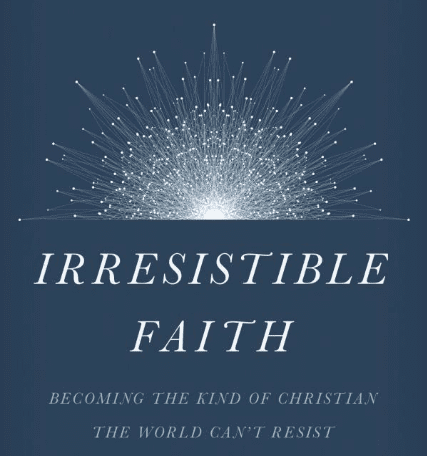 I used to tell my daughter Laura, a grade school teacher, that someone needs to write a book for children with the title “Ordinary is OK.” So many children grow up thinking being average is inferior — leading to grade inflation, and all sorts of social challenges.
I used to tell my daughter Laura, a grade school teacher, that someone needs to write a book for children with the title “Ordinary is OK.” So many children grow up thinking being average is inferior — leading to grade inflation, and all sorts of social challenges.
The fact is most people are ordinary and that is because if everyone is exceptional, no one is and that means everyone exceptional is actually ordinary. Ordinary is the norm. Heroes are the exception. A room full of heroes is a nuisance to everyone.
Scott Sauls, in his new book called Irresistible Faith, starts out his book with a chp called “Being Okay with not Being Okay.”
His points are that we are not perfect, that Christ is, that we are in Christ, that God loves the Son immeasurably, and that therefore we are immensely loved. We are not perfect and will not be perfect in this life. This chp is a Brennan Manning, Bob Goff, Henri Nouwen kind of chp. Well done. A needed theme for all ofus.
He makes a number of wonderful pastoral observations for those who struggle with the reality of sin and the difficult challenge of “the way of improvement.” Here are a few:
Our hopes, our dreams, our expectations — these can be transferred to the church, too — but he focuses on the individual.
When I first became a Christian, I had a brimming optimism about becoming a better version of myself.
Now, some twenty-nine years later, I am more of a realist. These days, I often feel more sinful and less holy and virtuous than I did in those first days as a brand-new Christian. Although there are many ways in which I have become more like Christ, in other ways I still ignore and disobey and even deny him.
How to live with Christian realism?
Encouragement comes from knowing that even the greatest heroes of faith were flawed and broken, wrecked, weary, restless, and sometimes tortured sinners—even when they were at their very best.
There is great paradox to life in Jesus Christ. We are on our way home, but we aren’t there yet. We long to be better than we are, but can’t quite figure out how to move forward, or even where to begin. The new has come, but the old, fleshly self remains with us. We are being made more like Christ, but our sin and selfishness and narcissism and idolatrous leanings are always there, threatening— even promising—to stunt progress. We move two steps forward then one step back, and sometimes three.
It’s OK not to be OK. That’s ground zero.
The beginning of blessedness—and the beginning of real change that will cause the world to notice the light in us—is not the realization that we are okay, but the realization that we are not okay.
God chose to love us as “Not Okays.”
As my friend the Los Angeles pastor Rankin Wilbourne often observes, God does not love us to the degree that we are like Christ. Rather, God loves us to the degree that we are in Christ. And that’s always 100 percent.
But we press on as a Not-Okay. God loves us.
This is the paradox: in the midst of our ongoing failure, we nevertheless continue our journey of becoming more like Jesus.
Being in Jesus and not under law also means we are considered perfect in God’s eyes. We have nothing left to prove. The impeccable, perfectly virtuous life of Jesus Christ—his love, his joy, his peace, his patience, his kindness, his faithfulness, his gentleness, 1 and his self-control—was forever credited to us at the cross. ‘ … And it keeps getting better. In Jesus, we are also loved by God in the longest, widest, highest, and deepest ways, such that nothing can ever separate us from that love—not even ourselves (Rom. 8:31-39).











